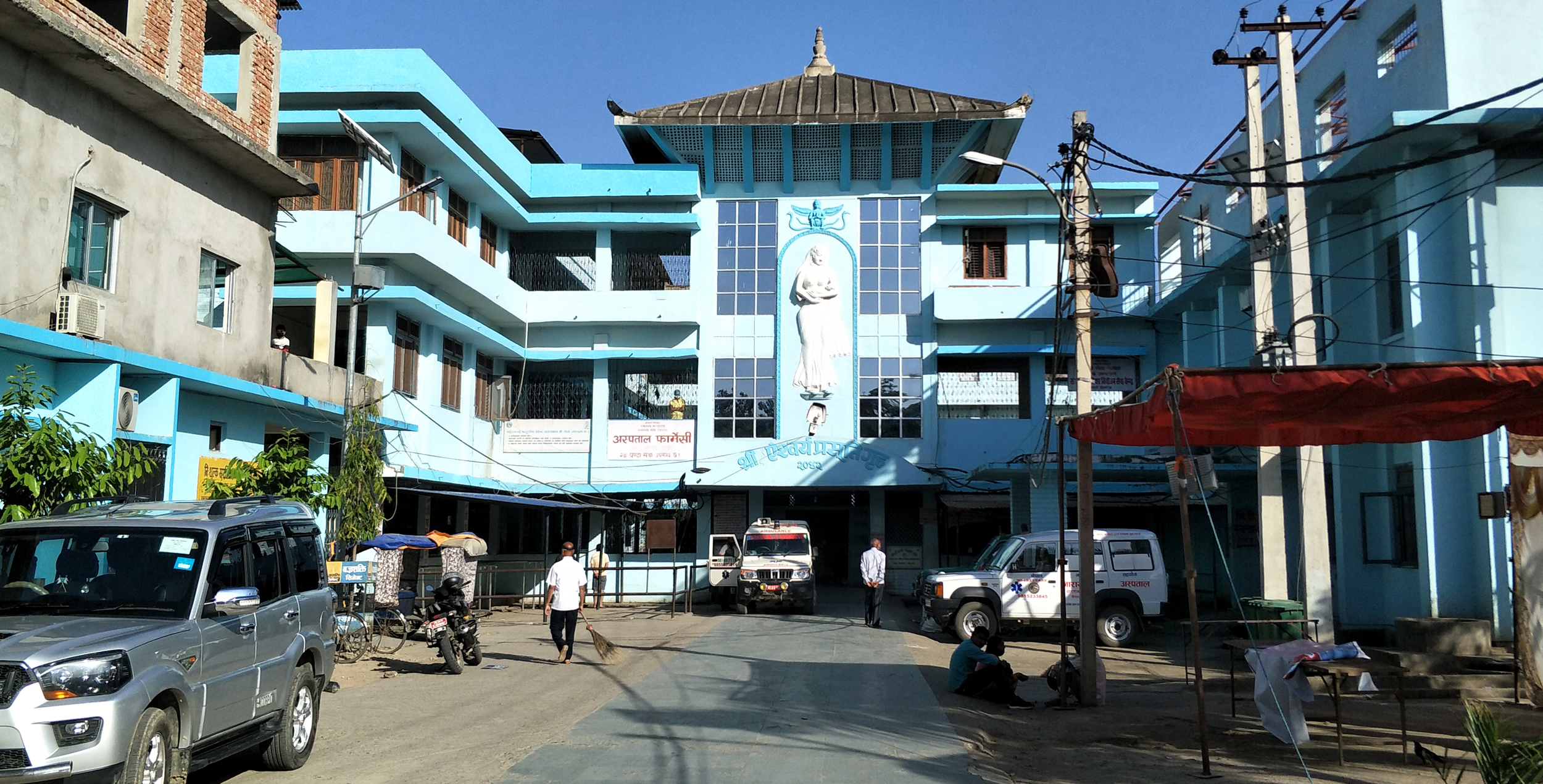Patients complain about lack of care, inadequate food
Kathmandu, May 16
Although government officials claim they can manage one lakh COVID-19 patients, those undergoing treatment at Narayani Hospital, Birgunj, complain they are not getting enough food, proper care and sanitation.
The hospital, at present, has 70 patients.
As per the World Health Organisation, suspected or confirmed COVID-19 patients should be provided their own flush toilets and where this is not possible, patients sharing the same ward should have access to toilets not used by patients of other wards. Each toilet cubicle should have a door to separate it from the patient’s room. Toilets in the hospital are, however, not suitable for coronavirus patients.
“The hospital lacks toilets. There are only two toilets for 24 people in a floor and one of the toilets doesn’t have a door. We need to wait in the mornings for our turn. It is also not clean,” said Panni Sarraf of Chhapkaiya.
Patients also complained they were not attended. “Neither doctors nor health workers come to see us. No further tests were conducted after we were admitted,” said a patient who preferred anonymity.
“Patients in isolation wards should be properly cared for. There should be a separate toilet for patients. A toilet used by an infected person should be disinfected before it is used by another person. Sharing toilets and keeping patients in close contact will increase patient to patient risk,” said Dr Sujan Marahatta, epidemiologist and public health expert.
“I was admitted to the hospital five days ago.
We get the same food in the morning and evening. They give us rice, pulses, potato or soyabean curry, eggs and noodles. The food is insufficient. There’s no second helping,” said Mohammad Firoj.
According to the Ministry of Health and Population, 242 persons who tested positive for coronavirus are in the isolation wards of various hospitals across the country. Patients, however, say they are not getting proper facilities.
They also complain about rude behaviour.
“I was going to the hospital after being informed that I had tested positive, but police came to me saying I had fled. They brought me here like a criminal. I suffer discrimination.
Somebody comes to the door, keeps the food, knocks and goes away.
It’s as if we are animals in a zoo. I feel like going home immediately,” said the patient, who did not want to disclose his identity.
Two patients who were kept in the isolation ward in the same hospital had fled earlier.
The World Health Organisation has recommended cleaning and disinfection procedures for health-care facilities.
It has said linen should be laundered and the surfaces where COV- ID-19 patients receive care should be cleaned and disinfected frequently (at least once a day), and after a patient is discharged.
But the place is not cleaned. “No one comes to the ward to clean it.
Also, some of the bed sheets have blood stains on them,” said Firoj.
Social distancing is a must to prevent infection. But this practice is not maintained at all among patients inside the isolation ward. “No physical distance is maintained here,” said Sarraf.
As the stay in hospital can be longer for coronavirus patients they need a medium to pass the time.
“This could be difficult for persons who tested positive, but do not have any symptoms.
They can feel lonely and also suffer mental problems. Therefore, internet facilities and television should be provided to them under surveillance,” said Dr Basudev Karki, consultant psychiatrist at Mental Hospital.
(The names of the patients were written with their consent)
A version of this article appears in e-paper on May 17, 2020 of The Himalayan Times.






